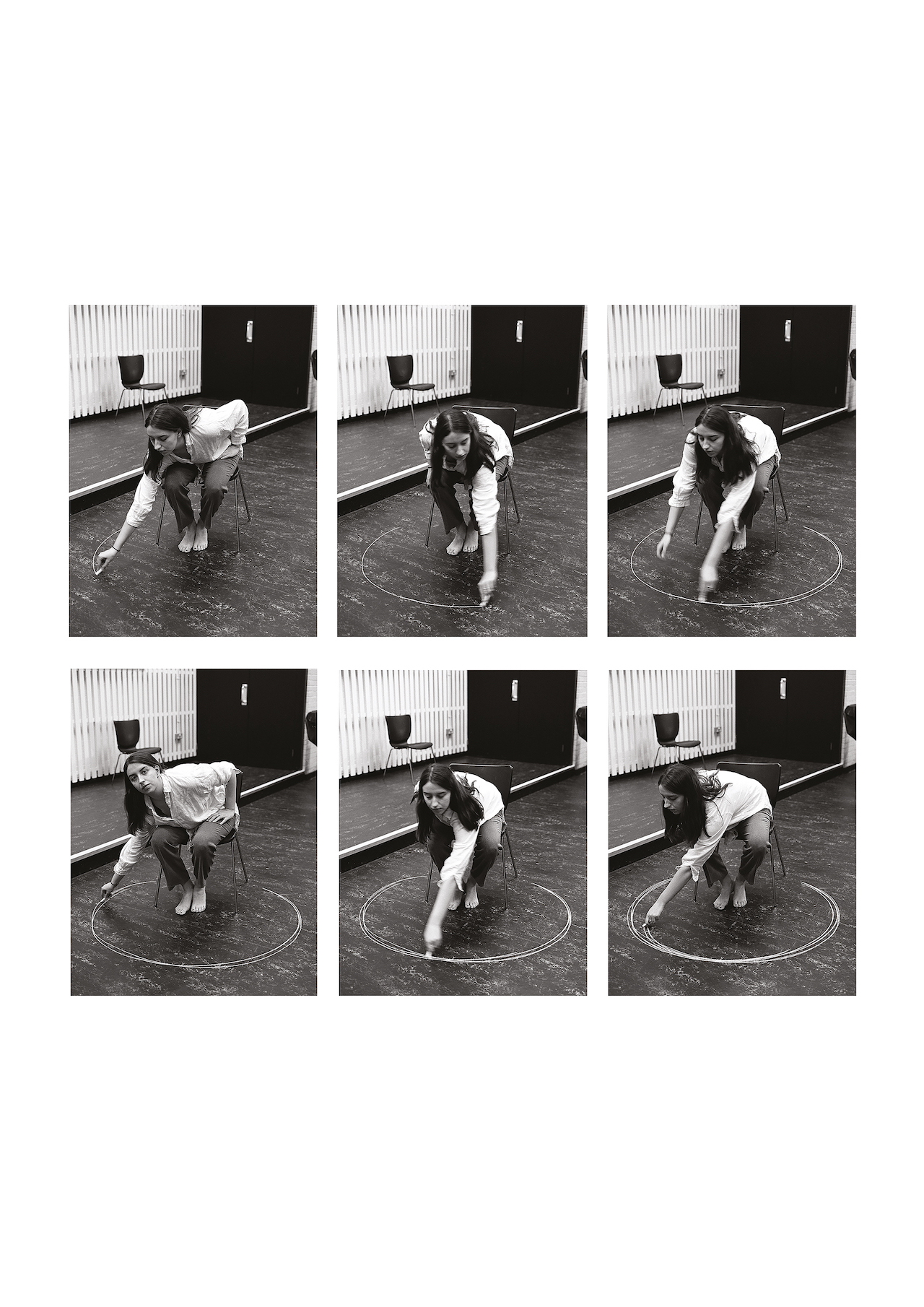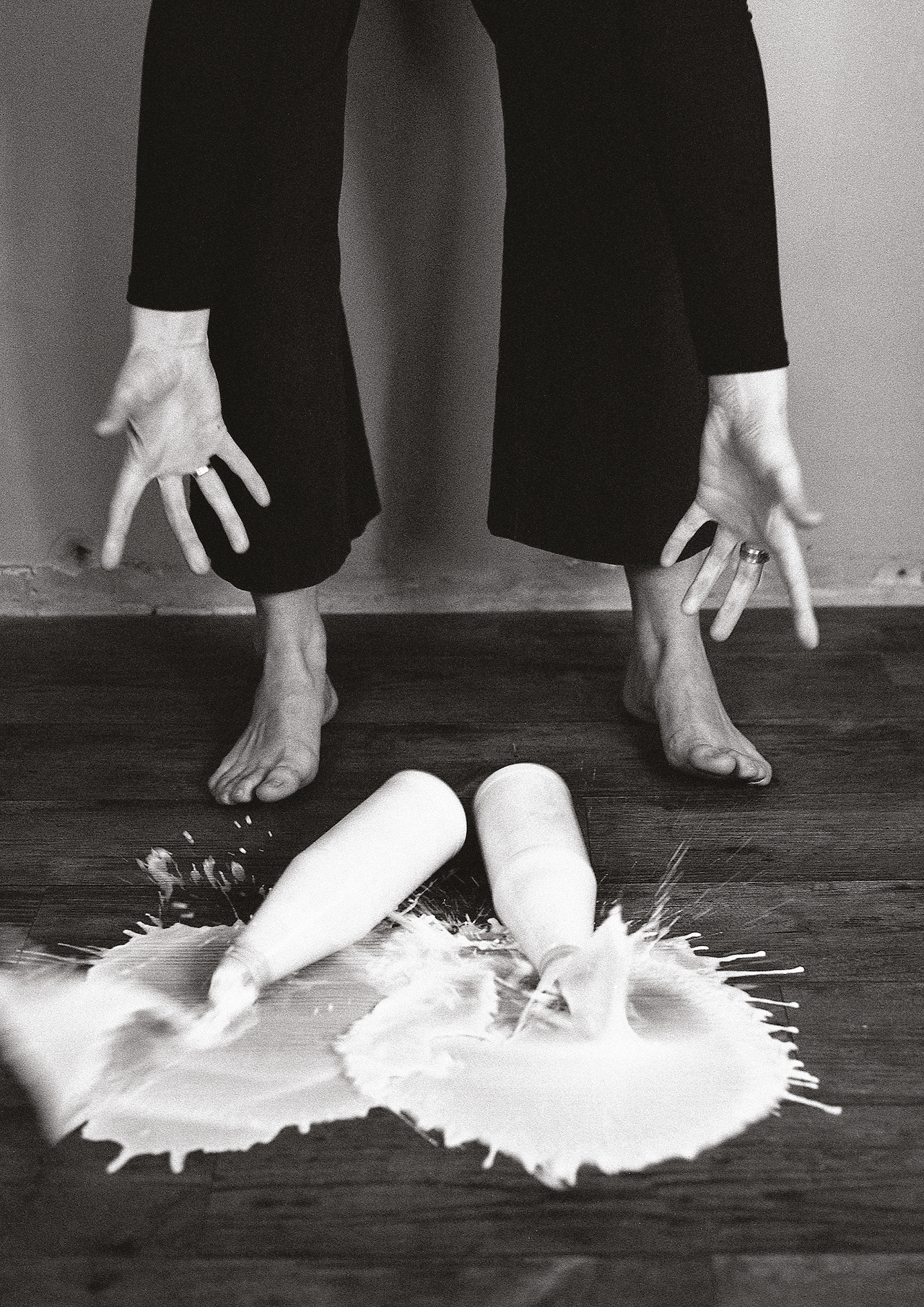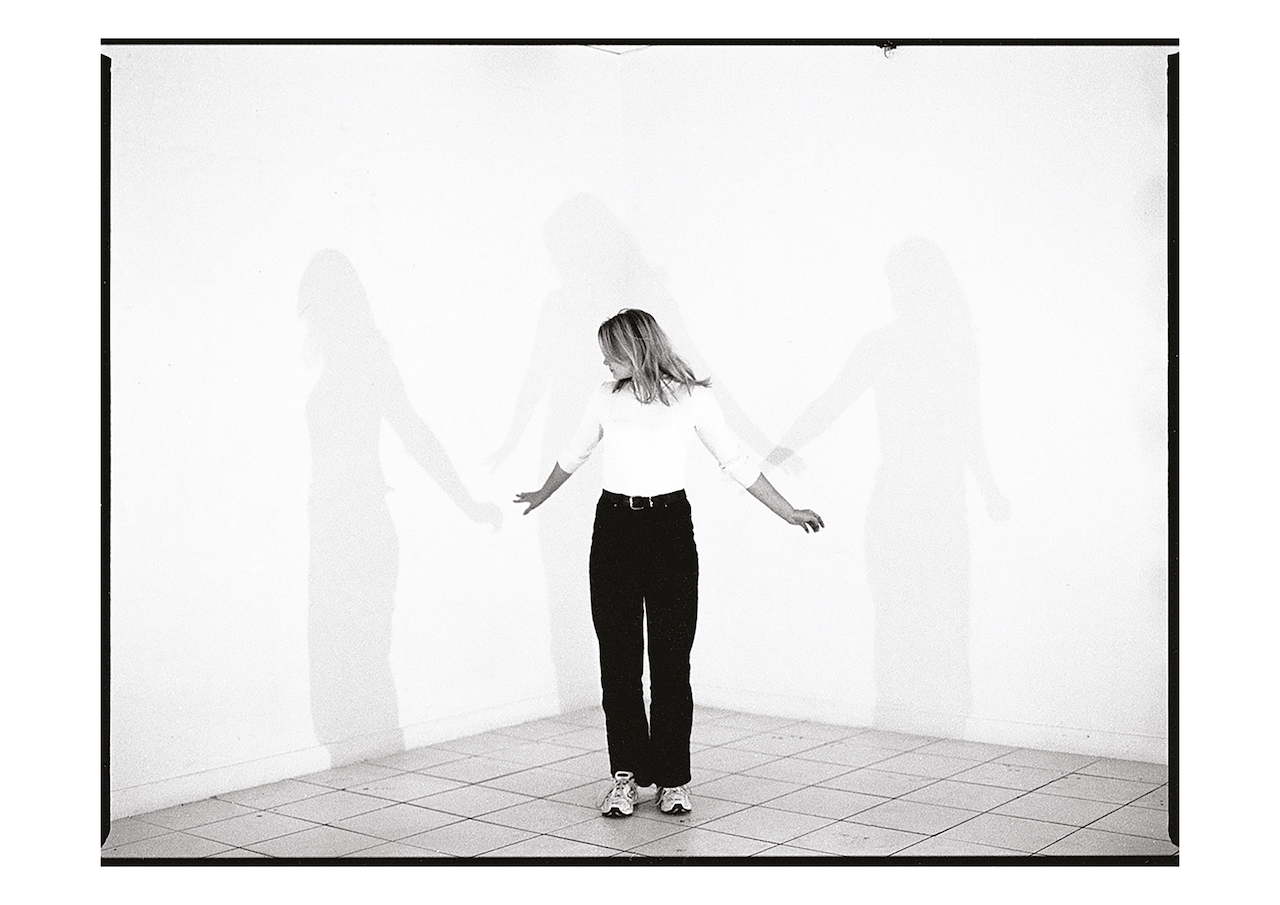All images © Emily Ryalls.
The photographer’s collaborative project communicates “both the comfort and despair that we find in those we are connected to”
A woman moves around a white-cube space. Her body, lit by fog lights, casts shadows on the walls. A second woman joins her, then a third. They touch, intertwine and lean on one another, their shadows multiplying and merging behind them. Among the figures is Emily Ryalls. Her collaborative project, We Share the Same Night, explores the shared experience of sexual violence, and communicates “both the comfort and despair that we find in those we are connected to”. Through stills, moving images and live performance, she subverts the threat of creeping shadows in the night, and creates simple yet stirring gestures of solidarity.
“I wanted to demonstrate this transformation from a feeling of isolation to one of community,” she says. “Shadow play is as instant as putting pen to paper. It’s this immediate creative response, and something that’s so accessible.” For the Wakefield-based artist, who runs the UK’s only fully wheelchair accessible darkroom, at the city’s Art House, accessibility and movement are integral, having shaped her route into photography.

Ryalls’ first love was dance, but when she fell chronically ill with postural orthostatic tachycardia syndrome in her early teens, her dreams of competing professionally were dashed. The condition, an abnormal increase in heart rate that causes dizziness and fainting, can be misdiagnosed as anxiety, “so it quickly falls into the ‘hysteria’ category,” she says.
As Ryalls began lobbying for more research into the condition, she encountered exploitative press photographers. “Journalists would come to the home when I was young, and they’d ask me to take my make-up off and look as sick and as sad as possible. I never knew how the photographs would be used, or what the angle would be,” she explains. “It made me question the role of a photographer, and how I wanted to be visualised and represented.”

Aged 16, Ryalls picked up a camera and began photographing herself and other women experiencing chronic health conditions. “Those visibility politics shifted as soon as I took control of the lens. I found this love for being in charge of my own identity, and for helping others reclaim their narrative.”
Her interest in women’s healthcare defined her early works, as did her long-held passion for performance. For her 2019 series The Yorkshire Moors, Ryalls and her mother took eight years’ worth of medical notes to the open landscape on a cold winter’s day, stringing up “the most antagonistic ones” on a makeshift washing line. As the notes danced in the wind, Ryalls weaved between the lines in a cathartic sequence of her own.
“I was interested in co-production from the start, and that shines through in the way that I work when I step in front of the camera,” she says. “When you strip back that very linear photographer-subject dynamic, you’re all these roles in one: composer, performer, image-maker and viewer. The camera becomes this tool for communicating the invisible.”

As Ryalls grew older, she built relationships with women through other shared experiences. Supported by the mentorship of artists Tom Lovelace and Hannah Starkey, she channelled the trauma of sexual assault into her practice, arriving at We Share the Same Night.
Ryalls sees the project, her most dynamic yet, as “a chapter within a much larger body of work looking at the complexities of the female experience and how we make sense of what that is”. It is fluid and ongoing, as she continues to respond to her lived experience and to those of the women around her: “It’s a jigsaw puzzle and I’m piecing it together as I go.”
emilyryalls.com

